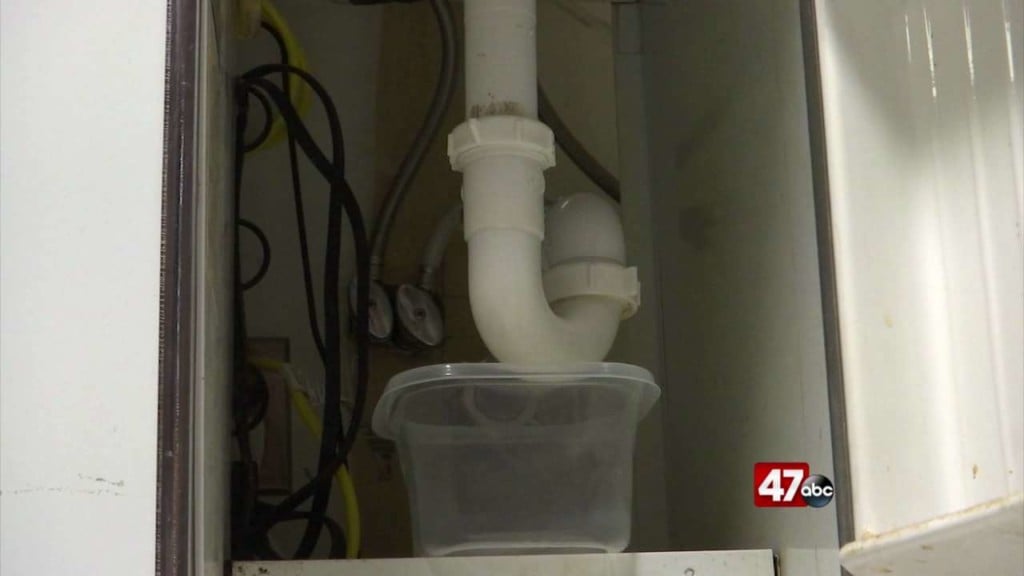Delaware ACLU highlights legislative priorities for 2023

DELAWARE- The Delaware ACLU is outlining its priorities for 2023, which they say is building on years of work that they have advocated for, including having a right to representation in eviction court and reforming probation to be less harsh for minor violations.
Delaware ACLU Director Mike Brickner tells 47ABC the common theme is taking systems that he believes were punitive, and violated civil liberties, and reforming them to better serve Delawareans.
“The through line in the work that we are doing is that we are really trying to ensure people who have been historically disregarded or disadvantaged in the system are able to claim back some of their power,” he said.
One measure that he believes is helping give Delawareans the most substantial increase in rights, is Senate Bill 1, which would provide legal representation for tenants in eviction court, helping to end what Brickner describes as a legal power imbalance between landlords and tenants.
“As it works right now 86 percent of landlords walk in with representation but only 3 percent of renters so this bill is really working to correct that imbalance,” he said adding ” in criminal or civil proceedings there is an understanding that these are complicated systems and you need help navigating them and we believe that extends to eviction,” he said.
Another measure that’s under even more scrutiny this year expanding abortion care to be part of the state’s Medicaid, and mandating coverage from private insurance.
Brickner says while abortion is currently protected by law, it’s not affordable or accessible for low-income families.
“Right now Medicaid doesn’t cover abortion services for those individuals when they go to an abortion clinic it can cost them up to 500 dollars out of pocket and many cannot afford that,” he said.
The group is also calling for an end to academic double jeopardy, where students are given in-school consequences, up to explosions for criminal penalties committed outside of school. Brickner says these policies set young people up for a lifetime inside the criminal justice system and hurt black and brown students at a disproportionate rate.
“We know these are communities that are over-policed and so to remove them from education, and the chance to make a change and improve their standing, especially when we are not talking about violent crimes will lead to kids with lower chances of success,” Brickner said.
Another measure he hopes can help to bridge the earning divide, reforming Delaware’s probation system, which is currently one of the strictest in the nation.
“By and large, those that are on probation in Delaware are on it for longer than in other states, with stiff penalties for minor offenses that could be as serious as being sent back to prison for mission a single meeting with a court-appointed officer,” Brickner said adding that for many, a missed meeting could stem from factors such as inability to get off from work or lack of transport.
“many of those folks haven’t committed a new crime but had a minor technical violation of their probation,” he said.
He says having penalties this stiff not only hurts the individuals but also comes at a great cost to the taxpayers.
“We see that when they are sent back then the state is losing the tax revenue they could have received from them in the workforce, their families struggle and so they have to onto state provided resources and programs and so this is a system that is costing us,” Brickner said.
Brickner says the group is also working to help craft the language that will be used in the state’s expungement of a records system, expected to begin record clearing in 2024.
While the measure passed last year, his group is working with lawmakers to create the pathways for expungement and keep them accessible.
“We found under the current rule that only those who had paid off any debts to the state were eligible for expungement, so we are working to change this so we don’t have a two-tier system where those with money can have their records cleaned, have a better path for jobs and those that can’t are still left in this system,” Brickner said.
Brickner says, these laws combined, can help them reach their smart justice initiative of reducing Delaware’s incarcerated population by up to 50 percent from when they started their goal, a number that currently sits at 30 percent.


